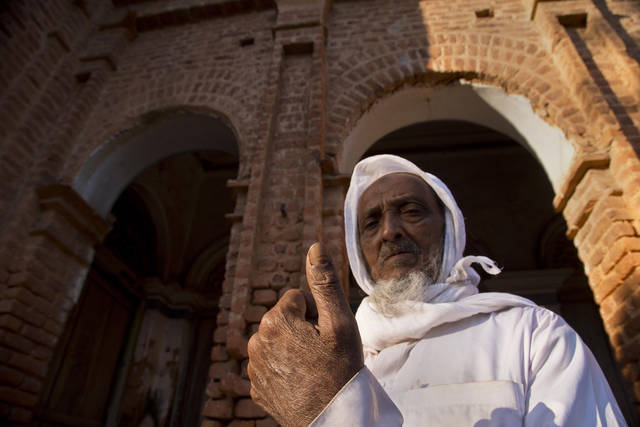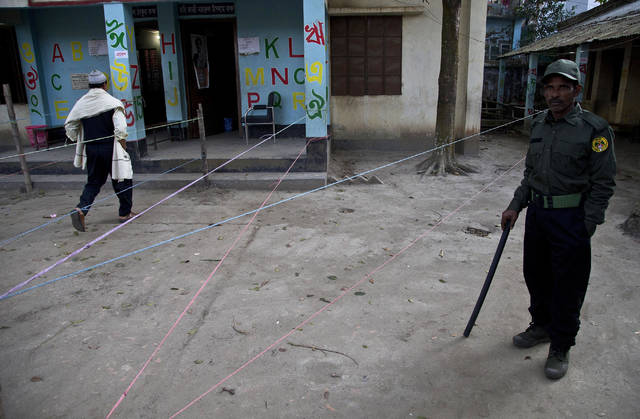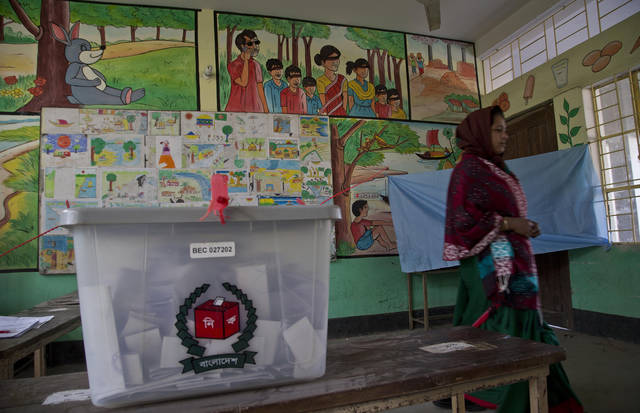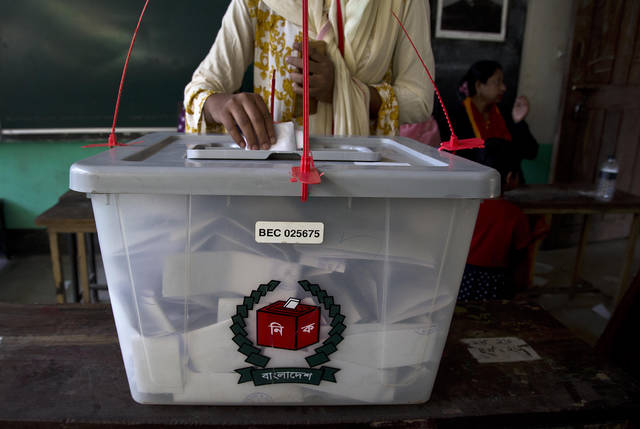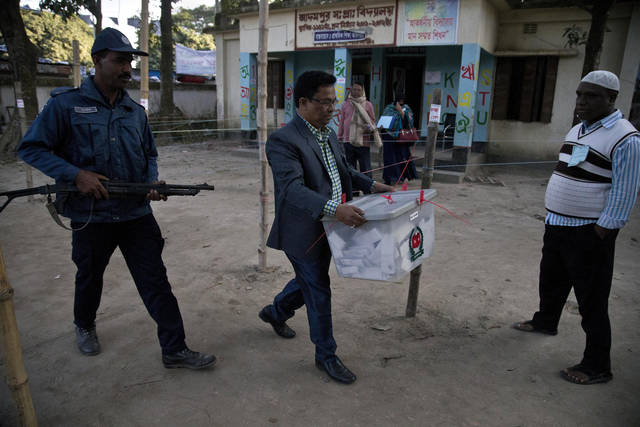PANAM NAGAR, Bangladesh — Voters in Bangladesh went to the polls Sunday in the densely populated South Asian nation’s 11th general election to determine whether to give Prime Minister Sheikh Hasina’s Awami League party a third consecutive term or hand the reins to a loose coalition of opposition parties in the hopes of change.
An opposition coalition led by a former foreign minister in Hasina’s party was hoping to end her tenure, but the odds favor Hasina, who has campaigned on a pledge to continue developing Bangladesh’s economy, dismissing critics who say the mass arrests and jailing of opposition leaders — including her archrival, former Prime Minister Khaleda Zia — show a tendency toward authoritarianism.
Hours after polling stations closed, Kamal Hossain, the leader of the opposition alliance, called the election “farcical,” saying any outcome would be rejected and demanding that a new election be held under the authority of a “nonpartisan government.”
About 30 kilometers (18 miles) southeast of the capital, Dhaka, in the district of Narayanganj is Panam Nagar, an ancient Hindu city and the 15th century capital of the Bengal sultanate.
The city boasts a collection of 52 historic structures — the ornate newer buildings date to the time of the Mughal and British empires.
Amid complaints by opposition supporters from across Bangladesh of intimidation and threats by the ruling party, voting at three polling stations around Panam Nagar appeared tranquil on Sunday.
Though electronic voting took place in parts of Dhaka, the voters around Panam Nagar cast paper ballots, using a purple stamp to mark their choice on a strip of white paper with eight candidates’ names and party symbols, and signing their names at the top.
Illiterate voters signed with their thumbprints.
Showing off his purple thumb, Haji Abdul Malek Mia, a 74-year-old father of five sons, said he voted because it was a civic duty. He said he wanted to see someone in power who would offer development. “Whoever is doing development, he should be there,” he said.
The more than 40,000 polling stations nationwide closed at 4 p.m., as the Islamic call to prayer boomed over loudspeakers.
At one polling station in Panam Nagar, the counting of the roughly 1,600 votes cast there began shortly after voting ended. Plastic bins full of paper ballots were dumped onto a sheet on the floor, where 10 people sat in a circle to organize and count the votes.
A district official would collect them later.
Election results were expected Monday.


